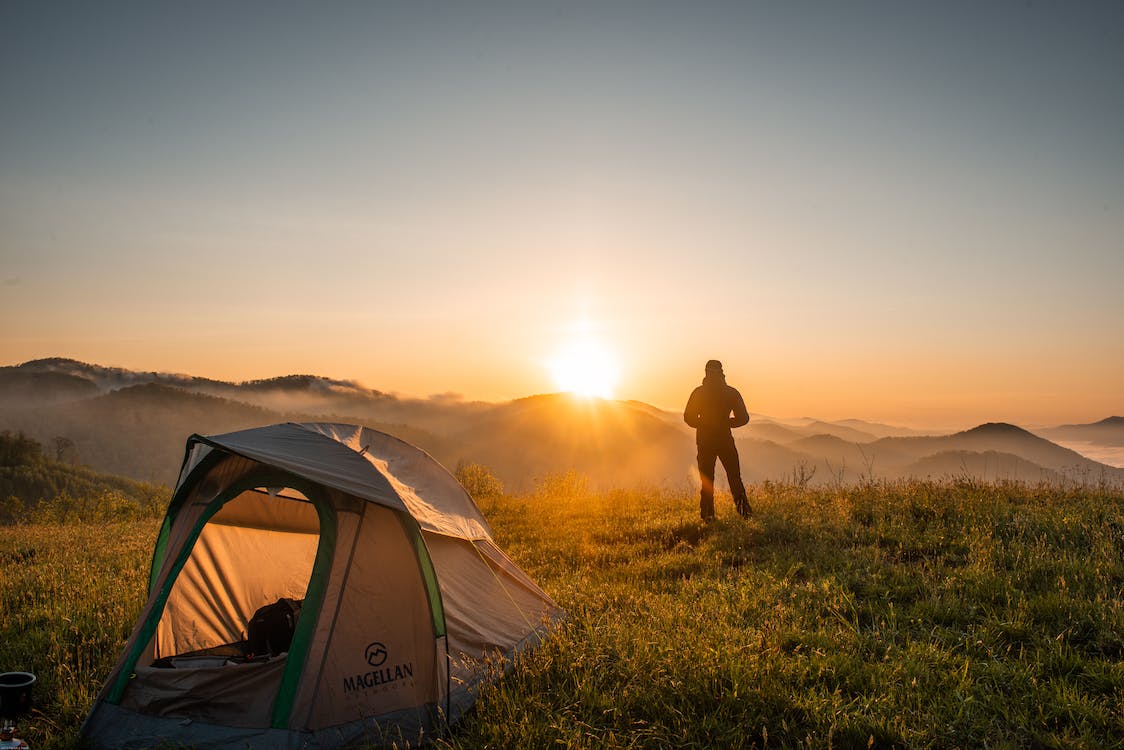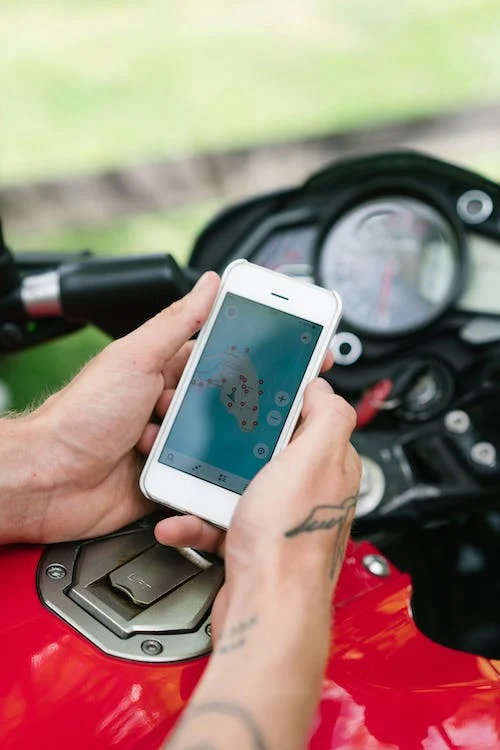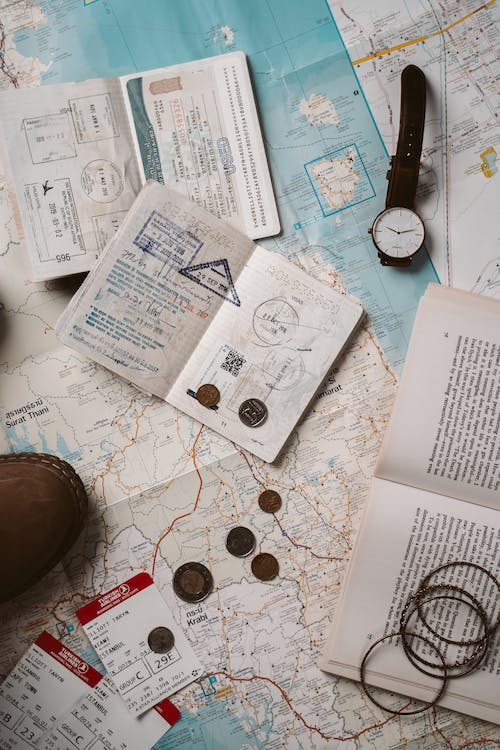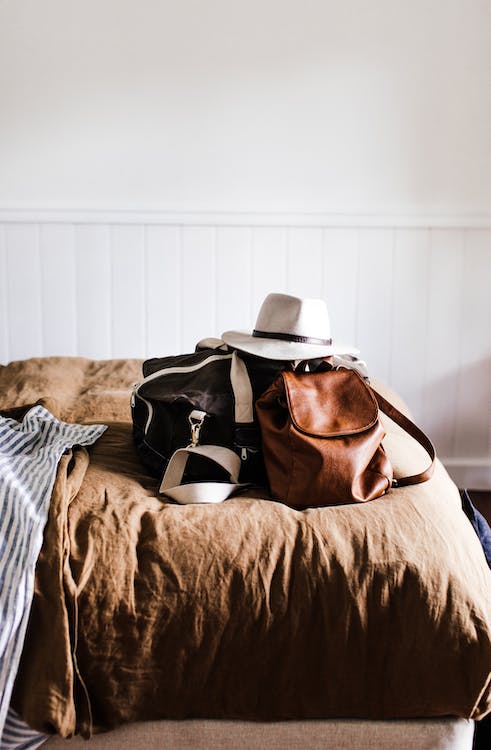A comprehensive travel guide for the man who is soon to embark on an adventure. We’ll be exploring: Pre-planning, inventory checklists, essential travel tips and more.
What’s covered in this guide? How to effectively plan a trip into unknown territory.
Who is this guide for? For the travelling man who values intelligent planning.
Introduction:
You know, when you think about it—We’re typically only ever 8 hours flying away from a life-changing environment. Tear inducing landscapes, awe-inspiring architecture and majestic cultural experiences are all within the grasp of the modern human. Sometimes, our lives can become predictable and entrenched within a specific way of thinking and acting. A harmful predicament for the curious mind. The static man, who neglects adventure and travel will soon find layers forming around his world—Layers that protect his stereotypes from outside intervention. His version of this world will rarely be subjected to real-world experience. He will depend upon second-hand information at a minimum to form his world model—Manipulated by bias, misinterpretation and Chinese whispers. Be curious, don’t ever lose your love for travel—And remember, even the bad experiences make great stories.
Our Travel Essentials for Men guide offers a helping hand to the man who is about to embark on a new adventure. Firstly, we’ll be covering the pre-planning process which aims to help you avoid any unnecessary headaches. Then we’ll discuss the unplanned travel adventure concept, followed by travel inventories and must-haves—Before finally, discussing some essential travel tips to be used at your own discretion.
Index:
- Travel Pre-Planning
- The Unplanned Adventure
- Essential Travel Documents
- Travel Bag Essentials
- Essential Travel Tips
Travel Pre-Planning
Before we embark on our adventure, we will begin with a comprehensive pre-travel recce. Here, we are looking to gather vital information to determine if we can pre-empt any issues that would have otherwise gone unseen. A substantial amount of the problems encountered on our travels could be thwarted with a well thought out pre-planning process beforehand. With the formidable power of the internet at your disposal, all of us now have unprecedented access to geographical imagery and real-time social data that we should be taking advantage of before we step foot in foreign territory.
Step 1: Area specific vitals
To begin this process, I’m looking to gather all of the vital information about my travel destination in one place: Time zone, weather data, electricity socket, currency info, exchange rates, the cost of food, phone-data prices, healthcare info, vaccination requirements, driving laws, visa information etc. An excellent online resource that I use for this process is The Basetrip. This free to use website kickstarts your pre-travel recce by filling your screen with all of the aforementioned information—All displayed on a beautiful looking website to be analysed and noted for your journey ahead.
Step 2: Embassy news, and local information
With the vitals out of the way, I’m off to a good start. I’m now going to locate my home nation’s Embassy within the country I’ll be visiting. Your Embassy will typically have a strong online presence these days—Including a Twitter feed, which often covers real-time news and notable security issues. Make a note of the appropriate Embassy contact numbers and store them in your phone before departing on your trip—This also prevents a temporary headache in the rare event that you require consulate support. Most Western Embassies also provide a web page for each country it resides within—Which should cover the local issues, state laws and customs.
Security Tip: When travelling to countries with an outstanding security threat, just remember—everyone in this world just wants to be treated unconditionally human. The locals aren’t the government. Security tensions are often between governments. Vigilance and smart travel decorum are essential but don’t get rattled by conventional Media spin. Conduct your own research! See: Navigating in a World of Disinformation
Once I have a solid grasp of the real-time goings on, I typically move to online community travel forums to accustom myself to the local culture and environment. Lonely Planet’s Online Community is an excellent place to visit, boasting an active international community of over one million travellers. Here you can tap into the collective wisdom of travellers who have visited the places there aren’t even guide books for!
Step 3: Geographical Data
I’m a big fan of utilising free online mapping services to make notes of my surroundings in advance of departure. Normally, this is just a habit of forming a baseline for situational awareness purposes. But it certainly has its pragmatic uses also! For instance, I can typically walk straight out of my gate within an airport I’ve never visited before and beeline it straight to my transport—Just like a local. I am saving time, and I am not standing out as your typical tourist. (Those who look confused and lost can be marked by potential thieves in many locations worldwide) Vacations aren’t an excuse to completely unplug your brain. Bad people are typically looking for people who are in La-La land to rob.
Depending on the type of trip, and the country—I may take notes on the main motorways, rivers and neighbourhoods—Which allows me to calibrate my biological map bearings as soon as I arrive. (The airport is 2km South East of my hotel, for example) This is certainly a habit that I’ve developed from my security background, and perhaps an overbearing approach to detail. But I must say, I find this process to be a significant stress reliever in the act of familiarising myself with the ground. Each to his own.
Moving on—Now is a good time to begin storing maps on your person—For the purpose of the immediate use upon your arrival. You really can’t go wrong with Google Maps these days. Google Maps is not only free, but it can store maps offline – No cell phone tower? Not a problem. Google maps works without an internet connection—It only needs a GPS signal (Wi-Fi is used to calibrate your location more accurately, but it’s not required) Whatever mapping app you choose to use, be sure to find one with offline functionality so that you’re not compromised in the event of insufficient cellular coverage.
And as much as I embrace humanity’s technological prowess, one of my favourite methods for travel information storage is my good ol’ fashioned Moleskine. I have used many of these throughout the years for work notes, journaling and uneventful scribbling—The ideal travel companion tool in my opinion. They’re easy to get on Amazon, but typically a tad more expensive than your average notebook. The Moleskine offers a very durable, sturdy build design. I have yet to find a notebook that rivals the quality of these things. Also, comes equipped with a hidden little pocket in the back! (I typically keep an emergency stash of currency in here.)
The Unplanned Adventure
You may be thinking at this point—What about the unplanned adventure? Isn’t this lost with such thorough planning? And I couldn’t agree more. Some of the greatest adventures are unplanned, and this shouldn’t be forgotten. I guess it really comes down to the type of trip you have and what you wish to achieve from it. Business trips and time-critical appointments should welcome a thorough pre-planning approach to avoid any heartaches—Vacation and discovery trips should all welcome the prospect of an unknown adventure from time to time. The burden of waypoints, timetables and expectations can often bring in an unwanted level of stress to a travel experience that would have been much better enjoyed, free of internal pressures.
And I can not stress this enough—Talk to the locals! This is one of the greatest aspects of travel. To really get to know another country, you must first know its people. Hang out with them, share stories over a whisky and connect. Learn of this world through a lens that differs from your own, you will be much better off for it.
Essential Travel documents
One essential task we must do before departing on our travels is to ensure we’re in possession of our required travel documentation. This is something that varies depending on the country we’re visiting. Use the above methods discussed thus far to conclude what these requirements are.
I also highly recommend that you make digital copies of the key documents that you’ll require on your trip. I normally store these copies securely via online cloud storage, so that I can access them wherever I am in the world, in the unfortunate event that my originals are lost/damaged.
- Passport: Some countries require that your passport must be valid for 6 months after the date you travel.
- Visa(s): Ensure all Visa requirements are completed (If required) and that you’re in possession of the relevant support documentation.
- Vaccination booklet/records: Yellow Fever certificate is currently the only mandatory vaccination certificate required in certain countries.
- Health & Travel Insurance documents: Ensure that you have a 24-hour emergency phone number with your insurance policy number available.
- Airline Tickets/Hotel bookings: Check if printouts are needed. Some companies do not accept e-tickets!
- Medical Issues / Allergies / Blood Group: Also include details of any family members travelling with you.
- Copy of prescription and a letter from your GP: Some prescriptions and over-the-counter medications might be illegal where you are heading. Be sure to research the legality beforehand. Secondly, consult your GP on your travel requirements and carry a letter from your doctor describing your medical conditions and the required medication if necessary. Remember, drug names differ in many countries, so learn the localised terminology of your medication to avoid any complications.
- Driving Licence: (Current & Valid) if you’re planning on driving.
- Child Documentation: If you’re travelling without your child’s other parent or guardian. You’re going to need a signed letter authorising their permission for you to travel with the child. Also, children with surnames that differ from your own may run you into border complications. Having a copy of your child’s birth certificate in this instance will be important.
- Emergency Contact Information: Details of a relative or a close friend who should be notified in case of an emergency.
Travel Bag Essentials
It’s time to gear up. Packing can be a stressful affair, but it doesn’t have to be. With a little bit of planning, you can rest easy in knowing you have your travel essentials locked down. Let’s aim to keep our luggage organised, light and manageable. With time, this process becomes an art form that allows you to enjoy your trip with the peace of mind that your inventory is in order.
The type of trip you’re embarking on will ultimately dictate your inventory. This section provides an introduction to the essentials of travel and should be seen through the framework of a standard 2-3 day trip in Europe.
The Travel Bag
Your ultimate travel companion—Don’t cheap out on this selection. It’s worth your time to invest in a quality travel bag that is user-compatible. The travel bag is something that you must depend upon to keep your gear safe and manageable across vast distances.
The first factor we must consider when choosing our travel bag is the matter of user-compatibility. A bag that looks good may or may not be comfortable on a specific body-type. So hold off on spontaneous online purchases and try these things in person. It’s not a problem if your bag of choice is available online for a cheaper price—Head to the store, give it a try and evaluate. Happy? Head home and purchase it online.
The next thing you need to consider is the bag’s size. You’re looking for a bag that is compatible with the numerous different airline carry-on restrictions. This can be challenging at first, as there are numerous different restrictions worldwide. 50x40x20cm is the size I would advise you aim for. This size seems suitable with the vast majority of airline carry-on restrictions. Conduct your research first!
The Toiletry Bag
There are numerous restrictions regarding the liquids you can bring with you in your hand luggage. When travelling within the EU, you’re able to bring liquids in your hand luggage under the following conditions:
- Containers must hold no more than 100ml
- Containers must be in a single, transparent, resealable plastic bag, which holds no more than a litre and measures approximately 20cm x 20cm
- Contents must fit comfortably inside the bag so it can be sealed
- The bag must not be knotted or tied at the top
- You’re limited to 1 plastic bag per person
- You must show the bag at the airport security point
If you’re travelling outside of the EU, There might be different rules in play for your toiletries. Check these rules with your airlines or airports before travelling.
Travel toiletry checklist:
- Toothpaste (100ml)
- Travel Toothbrush
- Floss
- Shower gel (100ml)
- Moisturiser (100ml)
- Deodorant (100ml roll-on)
- Sun lotion (100ml)
- Tweezers and Nail Clippers
- Condoms
Miniature Travel First-Aid kit:
I like to be prepared for any minor medical matters that may arise on my travels. Stomach and digestive issues are more likely to be a problem in foreign environments than trauma incidents—so I typically bring a small container containing some well-known remedies for stomach related issues.
- Lost Body Water & Salts Sachets: Replaces the body fluids and salts lost during illness.
- Supplement Tablets: Imodium AD, Heartburn tablets, Beano Tablets, Ginger tablets & Magnesium tablets.
- Plasters (Waterproof)
- Lip Balm: (With Sun Protection)
The Travel Essentials:
We’re now going to highlight those key essentials for any trip. But before we begin, I suggest grabbing a handy little organiser pouch to keep all of the essentials in order. I’ve now got myself a formidable collection of Maxpedition Organisers for my travels. I use them for med-kits, admin folders and EDC pouches. I can’t advise these enough—Durable and effortless to pack. Lastly, when you’re unpacking in the hotel and want to get out of the room as soon as possible, these things can just be dumped into the security safe right away.
- Headphones: Music enjoyment, Podcasts and Hand’s free communication.
- Tablet: Your tool for reading, browsing the internet, or getting some important work done.
- Smartphone: Doubles as a camera.
- Device Charging Cable(s): To recharge your devices.
- Miniature portable USB charging unit: To recharge your devices on the move.
- Travel Adaptor: Because the world is still divided on such issues.
- Travel Documentation folder: I normally keep my docs in an organiser pouch. (As shown in image above)
- Wallet: Loaded with some local currency. (Not all locations will take card)
- Earbuds: We can’t always control the noise, but we can make it less troublesome.
- Small microfiber towel: Explained in detail below. (See: Essential Travel Tips)
Essential Travel Tips
Avoid Checked Baggage when possible
I can’t emphasise this enough. There is a reason I’ve included this tip first. Avoid checked baggage if it’s feasible. Firstly, your trips are always off to a slow start when you’re hanging around the airport, waiting for your bags to turn up on the conveyor belt. Then there are the following potential issues:
- Want to grab an earlier flight? The first thing the airline will ask: Do you have any hold luggage, Sir?
- Late to the airport? No check-in line required. Check-in online and proceed immediately to security!
- This goes without saying, but the airline isn’t losing your luggage if it’s with you.
- When travelling in a group, each check-in bag increases the risk of a missing bag – Thus, delaying the journey for everyone.
If you must use checked baggage (And sometimes it is unavoidable) And you are travelling with your partner or friend, pack one or two of your outfits in their bag, and vice versa. That way, if one of your check-in bags doesn’t appear on the other side, you both still have access to fresh clothes.
Lastly, please only use approved airline cabin bags for carry-on travel. Don’t be that guy who is surprised to learn that his monolithic choice of storage won’t be allowed to be carried on.
Choosing your aircraft seat
Airlines earn an extra bit of coin by allowing us to choose our seats these days, and for those of us who stand over 6 foot tall, (183cm) sufficient leg room is a blessing. So I’m typically looking to grab the emergency exit seats if I’m privileged enough to pick them on my pre-purchase choices. (Also nominating myself to take an action role in the event of a catastrophe; You are welcome folks!)
The tip here comes down to the choice you have when you must select the front or back end of the plane—A mixed bag of benefits and drawbacks await us with this decision. In most commercial aircraft, seats in the back experience more cabin noise; the difference can be significant enough to cause discomfort, and it is one of the reasons why first class is located in the front of aircraft.
In wide-body aircraft, rear economy window seats will provide you with a better view than in the front of the economy section, where the wings obstruct the view. The effects of turbulence are weakest near the leading edge of the wing (In the middle of the aircraft) Finally, if we’re to use the data from airline accidents in which some passengers survived and others did not (Sorry to be a downer) We can see that seats at the rear of the plane are statistically safer.
In addition, we must also choose our aisle. Window seats provide us with those sweet, glorious views of the Earth. But for those long journeys, my favourite location is the aisle seats, giving me more freedom to move around the plane without having to continuously hassle your fellow seat-neighbours. [Bonus: Aisle seats are also the first to grab their bag and leave.] Just don’t select the middle seats (lacking the advantages of either window or aisle seats!)
Camouflage your Valuables
If you’re going to be using expensive equipment on your travels (Laptops and Photo Equipment) Put some Gaffer tape on it. If it looks damaged, nobody will want to steal it.
Coping with Jet Lag:
Once the plane is in the air, immediately set all of your clocks to destination time. Try to stay awake now until it’s bedtime hours at your destination. (This may be difficult or not depending on your travel direction and the time you leave.)
Once you land, DO NOT NAP unless you have seen the sun go down. We want to get the body’s melatonin production in motion. Use (legal) substances if required!
Important: Once the sun is down, and it’s a reasonable bedtime, GO TO BED. It’s always easy to try and stay up if you arrive late after a long flight (Especially if you’re not tired) but it seriously pays off to get into the localised sleeping pattern as soon as possible. Repeat on your second day (Witness the sunset, do not stay in your room!) and you should be good.
Bring an empty water bottle to the airport
Purchase yourself one of those durable, Nalgene BPA free bottles—Those things will be one of the best purchases you will ever make for under 15 bucks. These things go with me everywhere. Once you’re through airport security with your empty bottle, proceed to a bar/restaurant and find an employee who isn’t currently stressed and dealing with customers. Excuse yourself in the politest manner, and simply ask if it would be possible for them to fill your water bottle from the tap. A confident and humble approach will find your bottle filled in most places—Stop paying for overpriced water if you don’t have to!
Finding The Locals
If you’re looking to find some locals to hang with while you’re travelling, head on over to the biggest university in town and find the cafeteria. Here, look for a group of friendly looking people and respectfully introduce yourself—Ask them if you can trade English lessons for some quick lessons in the local language. This is an excellent icebreaker and a great way to connect authentically with the locals. It’s quite likely that some members of the group will speak a decent level of English anyway, and 9 times out of 10 someone from the group will be happy to show you around and introduce you to a good bar/party/event (Whatever is happening later that night) A worthy addition to The Unplanned Adventure segment we discussed earlier.
Never forget your Towel
“Any man who can hitch the length and breadth of the Galaxy, rough it, slum it, struggle against terrible odds, win through and still knows where his towel is, is clearly a man to be reckoned with.”
-Hitchhiker’s Guide to The Galaxy
Oh and make it a quality microfiber/quick dry towel, then you’re golden! These things can be used a beach towel, head wrap on dusty roads, used as a blanket while you’re stargazing, can be used to bundle things up to carry, oh and to dry yourself off also of course—A formidable ally to your travel inventory.
The Price of a Memory
Travelling can get expensive. No secrets there. A point to consider when you’re pondering over the cost of a potential experience—You’ll never remember how much that awesome thing you wanted to do cost, but you’ll always remember that awesome thing.
Think about it. Do you ever recall how much an experience cost you? That nice meal you purchased overlooking the harbour at sunset or the deep cave exploring trip you took part in?
“Value is remembered long after price is forgotten”
You are an ambassador to your country, culture & values
A genuinely awesome responsibility, regardless of how you choose to identify yourself. Your conduct in foreign lands and your etiquette will directly change and influence the way people think about your country and your entire culture.
This is a duty that not only affects you but all of your countrymen that will follow after you. At this very moment, as I write this piece, I’m in a country that differs from my homeland and I witness this phenomenon on a regular basis. Stereotyping is real, regardless of our opinions on it – Yeah, it’s sad that some people get really fixated on clichés that are often disconnected from reality—But as a traveller, you must learn to live with it. I’ve personally confirmed and changed many stereotypes about my countrymen as I’ve been here. For better or for worse! It’s important to me that I regularly give the best version of myself to provide a lasting impression of my people and my values. So remember, have a consideration on how your travel conduct may affect your fellow countrymen after you have departed.




